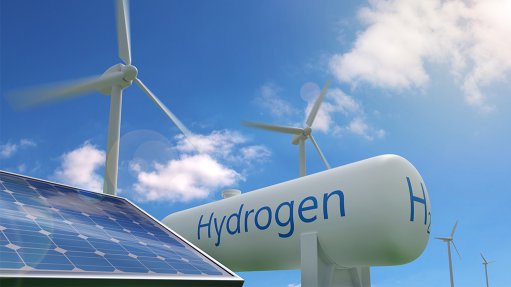GSMA highlights AI’s potential to drive South Africa’s socioeconomic growth
South Africa has emerged as a pivotal player in leveraging AI for socioeconomic development and climate impact.
However, unlocking the full potential of AI will require overcoming barriers such as limited data availability, high technology costs and a gap in AI skills.
Citing research from AI4D Africa, GSMA said that, while Africa currently accounts for only 2.5% of the global AI market, emerging AI applications have the potential to boost the continent's economic growth by $2.9-trillion by 2030.
South Africa, with its robust computing capabilities, data centres and a vibrant research and development ecosystem, stands out as a regional leader in AI, the organisation outlined in its latest report, ‘AI for Africa: use cases delivering impact’, which was funded by the UK Foreign, Commonwealth and Development Office.
“AI has the power to support the transition of South Africa’s key industries by significantly boosting efficiency, sustainability and resilience,” explained GSMA mobile for development head Max Cuvellier Giacomelli, highlighting AI’s transformative capacity in agriculture, energy, climate action and health.
Despite the country having fewer AI use cases in the areas covered in the research compared with peers such as Kenya and Nigeria, its focus on advanced sectors such as financial inclusion, manufacturing, education and health presents significant opportunities to extend AI's benefits to broader social and environmental challenges.
AI applications can enhance productivity and food security in the agriculture sector, as well as optimise energy access and efficiency, reduce health inequalities and build resilience amid climate change.
According to the report, South Africa has a relatively advanced agricultural sector, employs less than 20% of the workforce and features a mix of developed commercial players and subsistence farmers.
The report identifies substantial opportunities for digital technologies and AI to enhance resource allocation efficiency, boost agricultural productivity and yields, improve market access for farmers, and minimise inputs and crop waste.
However, several challenges hinder the widespread adoption of AI innovations in agriculture, including the availability of data and devices such as smartphones and sensors, as well as unreliable connectivity in some rural areas.
While smartphone penetration was relatively high in South Africa, the cost of mobile data could remain a barrier, and there was a notable lack of digital skills among key end users, which further complicated the integration of AI technologies, GSMA pointed out.
Meanwhile, as South Africa grapples with energy challenges that include ageing infrastructure, reliance on coal and the need to ensure reliable and sustainable energy access for all, AI has the potential to transform the energy sector by driving efficiency, sustainability and resilience. However, its application is still in the early stages.
In addition, despite successes in expanding access and incorporating renewable sources, South Africa's energy sector faces significant challenges in reaching rural areas and maintaining reliability.
“AI technologies can be used in combination with tools like geospatial mapping to enhance energy distribution and reliability, as well as increase the uptake of off-grid solutions like solar home systems,” GSMA noted, further pointing out that mobile operators, such as Vodacom and MTN, were investing resources to optimise their own energy use and improve network resilience, particularly in areas with inconsistent power supply.
South Africa, which is vulnerable to the impacts of climate change, also stands to benefit significantly from AI-driven climate action solutions.
“AI applications in disaster preparedness, natural resource management and biodiversity conservation are highlighted as critical in mitigating the effects of climate change. For instance, the Microsoft AI for Good Lab’s project with the South African National Parks leverages AI to prevent human-wildlife conflict, while the World Food Programme’s SKAI initiative uses AI to develop real-time insights for disaster response,” the report said.
Further, AI has the potential to significantly enhance efficiency and scale existing digital solutions in South Africa's health sector, which faces challenges including a high disease burden and unequal access to quality services.
By automating tasks such as patient management and hospital resource allocation, improving the accuracy of medical imaging diagnostics and deploying AI-powered telemedicine platforms, AI can make healthcare more accessible, particularly in rural areas.
The report highlights innovative startups such as Envisionit Deep AI and Quro Medical, which are leveraging AI to advance medical imaging and enable remote diagnosis.
While the potential for AI to drive socioeconomic growth in South Africa is immense, several barriers need to be addressed.
“By overcoming barriers like local data availability or digital skills, the country can hope to harness AI’s potential to propel socioeconomic growth and sustainable development for all,” said Giacomelli.
The report further emphasised the importance of building robust data ecosystems, increasing investments in AI infrastructure and enhancing digital skills training programmes.
To fully harness AI’s transformative capabilities, the report advocates for a multi-faceted approach involving partnerships across the public and private sectors, investment in local data and AI ecosystems, and policy support.
“Encouragingly, South Africa’s smartphone penetration, currently at 56%, is expected to reach 75% by 2030, positioning mobile-based AI solutions as a practical way to extend AI’s benefits across the population.”
Article Enquiry
Email Article
Save Article
Feedback
To advertise email advertising@creamermedia.co.za or click here
Announcements
What's On
Subscribe to improve your user experience...
Option 1 (equivalent of R125 a month):
Receive a weekly copy of Creamer Media's Engineering News & Mining Weekly magazine
(print copy for those in South Africa and e-magazine for those outside of South Africa)
Receive daily email newsletters
Access to full search results
Access archive of magazine back copies
Access to Projects in Progress
Access to ONE Research Report of your choice in PDF format
Option 2 (equivalent of R375 a month):
All benefits from Option 1
PLUS
Access to Creamer Media's Research Channel Africa for ALL Research Reports, in PDF format, on various industrial and mining sectors
including Electricity; Water; Energy Transition; Hydrogen; Roads, Rail and Ports; Coal; Gold; Platinum; Battery Metals; etc.
Already a subscriber?
Forgotten your password?
Receive weekly copy of Creamer Media's Engineering News & Mining Weekly magazine (print copy for those in South Africa and e-magazine for those outside of South Africa)
➕
Recieve daily email newsletters
➕
Access to full search results
➕
Access archive of magazine back copies
➕
Access to Projects in Progress
➕
Access to ONE Research Report of your choice in PDF format
RESEARCH CHANNEL AFRICA
R4500 (equivalent of R375 a month)
SUBSCRIBEAll benefits from Option 1
➕
Access to Creamer Media's Research Channel Africa for ALL Research Reports on various industrial and mining sectors, in PDF format, including on:
Electricity
➕
Water
➕
Energy Transition
➕
Hydrogen
➕
Roads, Rail and Ports
➕
Coal
➕
Gold
➕
Platinum
➕
Battery Metals
➕
etc.
Receive all benefits from Option 1 or Option 2 delivered to numerous people at your company
➕
Multiple User names and Passwords for simultaneous log-ins
➕
Intranet integration access to all in your organisation


















